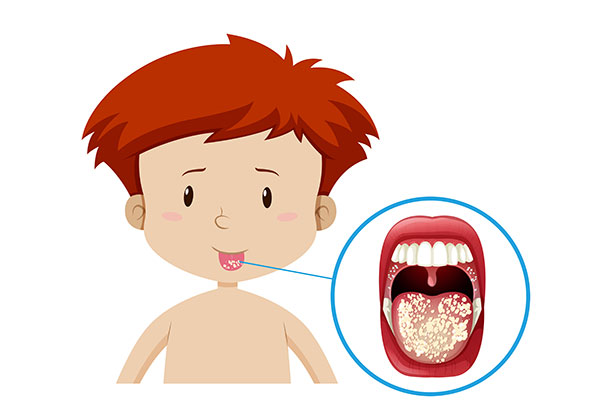
- What is Candida?
- How to Prevent Candida Overgrowth
- How is candidiasis usually treated?
- Does CBD oil treat Candida?
- Is CBD oil beneficial for Candida?
- Is CBD an antifungal?
- The pros and cons of using CBD for Candida
- CBD and other Candida treatments
- How Can You Use CBD Oil For Candida?
- How to use CBD cream for Candida?
- Conclusion: CBD Oil for Candida
Candida is a yeast that exists in the body naturally. However, when it overgrows, it can cause several problems, including yeast infections.
There are many different treatments for candida overgrowth, but many of them come with harsh side effects.
CBD oil is a natural treatment for candida overgrowth that works well. It may aid in the restoration of gut bacterial balance, which is necessary for treating yeast infections.
CBD oil is also recognized for its anti-inflammatory characteristics, which can aid in the treatment of candida overgrowth-induced inflammation.
In this article, we will discuss how CBD oil can help treat candida overgrowth and how to use it safely.
What is Candida?
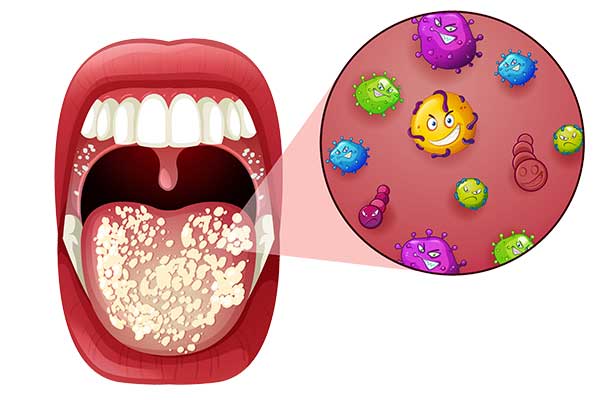
Candidiasis, more commonly known as yeast infection or thrush, is an overgrowth of the fungus Candida albicans in your body due to an imbalance between good and bad bacteria. According to researchers, approximately 75% of women will have at least one yeast infection throughout their lives.
Candida normally resides on the skin and within the body, causing no damage.
However, when there is an imbalance of good to bad bacteria due to certain factors such as a poor diet (too much sugar), a weakened immune system, or taking antibiotics, it can result in Candida overgrowth, leaving you with symptoms such as itching, burning sensation, and discharge from your vagina.
How to Prevent Candida Overgrowth
While the studies above show that CBD oil may be useful in treating yeast infections, it’s important not to rely on this alone. Here are some simple ways you can prevent candida overgrowth:
- Reduce sugar intake and refined carbohydrates as they feed off bad bacteria (candida).
- Eat probiotic foods such as sauerkraut, kimchi, and kefir or take a quality probiotic supplement daily.
- Consume more coconut oil, which has antifungal properties.
- Avoid wearing tight clothing, especially underwear made from synthetic materials such as polyester, for long periods, particularly if you’re prone to yeast infections.
- Practice good hygiene and keep the area around your vagina clean.
If you are experiencing recurrent yeast infections, it might be worth investigating whether you have candida overgrowth. Speak to your doctor about testing for candida and, if necessary, treatment with CBD oil may help.
Different types of Candida
Candida albicans is the most prevalent yeast infection, and it can cause both vaginal and oral infections.
Other types of Candida include:
- Candida glabrata: This type of Candida is the second most common type of yeast infection. It typically causes skin and genital infections.
- Candida tropicalis: This type of Candida is most commonly found in tropical and subtropical climates. It can cause both skin and oral infections.
- Candida parapsilosis: This type of Candida is typically found in hospitals and other healthcare settings. It can cause both skin and blood infections.
- Candida krusei: This type of Candida is typically found in hospitals and other healthcare settings. It can cause both skin and blood infections.
- Candida lusitaniae: This type of Candida is typically found in the gastrointestinal tract, urinary tract, respiratory tract, skin, or nails.
Symptoms of Candida
Candida is a type of yeast that exists in the human body. Overgrowth can lead to candida, which causes numerous health problems.
Common symptoms of candida are:
- Brain fog (lack of mental clarity)
- Fatigue and lethargy
- Headache and migraine
- Bloating, gas, and constipation
- Cramps and abdominal pain
- Rectal itching
- Vaginal discharge in women, penile discharge in men.
- Nausea and vomiting
- Skin problems such as eczema, psoriasis, etc.
- Oral thrush (a white coating on the tongue)
- Urinary tract infections (UTIs)
- Irritability, mood swings, and depression
How is candidiasis usually treated?
The following medicines are used to treat Candida infections:
- Azoles: These drugs inhibit the production of ergosterol, an essential component of fungal cell membranes. They are used to treat both oral and genital candidiasis. Examples include fluconazole (Diflucan), itraconazole (Sporanox), ketoconazole (Nizoral), and miconazole (Monistat).
- Nystatin: This medication inhibits the growth of fungus by disrupting its cell membrane. It is used to treat both oral and genital candidiasis and is taken by mouth or applied to the skin.
- Amphotericin B: This drug kills fungal cells through action on their membranes. It is generally reserved for patients with serious candidiasis infections.
All of these drugs have potential side effects, which should be discussed with your health care provider before starting treatment.
Some people also use CBD oil for candida treatment. In vitro, it’s been proven to harm Candida albicans cells. CBD oil is available as an over-the-counter supplement and can be used alone or in combination with other treatments.
CBD oil has few side effects and may be a better option for some people than prescription medications. Talk to your health care provider if you are interested in using CBD oil for candida treatment.
Does CBD oil treat Candida?
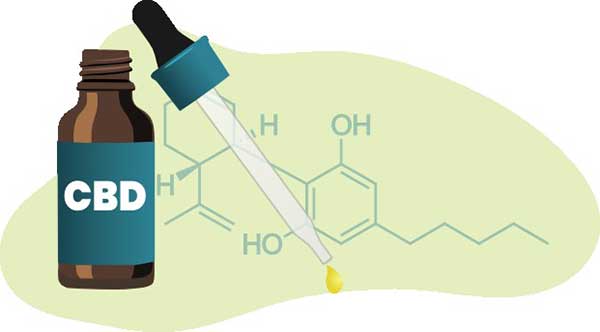
There is some evidence that CBD oil may help treat yeast infections. A study published in the journal Molecules showed that CBD oil had anti-fungal properties and was able to inhibit the growth of Candida albicans.
Another study, published in Phytotherapy Research, found that CBD oil was effective in reducing inflammation caused by candida overgrowth.
If you are experiencing symptoms of a yeast infection, it might be worth trying CBD oil as a natural treatment option.
Is CBD oil beneficial for Candida?
CBD oil is effective in fighting candida and other fungi. CBD oil is also a powerful anti-inflammatory, which can help to reduce the inflammation that often accompanies yeast infections.
CBD’s anti-inflammatory qualities might aid in the prevention of candida damage to the digestive system.
CBD oil is a great way to treat Candida overgrowth naturally and safely. It may not be as effective as prescription medications, but it can help manage symptoms and prevent future infections.
Is CBD an antifungal?
There is some evidence to suggest that CBD oil may have antifungal properties.
One study published in the journal “Frontiers in Microbiology” found that CBD was able to inhibit the growth of several different species of Candida, including C. albicans, C. glabrata, and C. parapsilosis.
The researchers hypothesized that CBD had this effect by inhibiting the activity of enzymes called cytochrome P450 (CYP) isozymes.
These are important for breaking down lipids in your body, and if they’re inhibited, it could lead to a build-up of toxins which then trigger an immune response against the fungus causing Candida overgrowth.
The pros and cons of using CBD for Candida
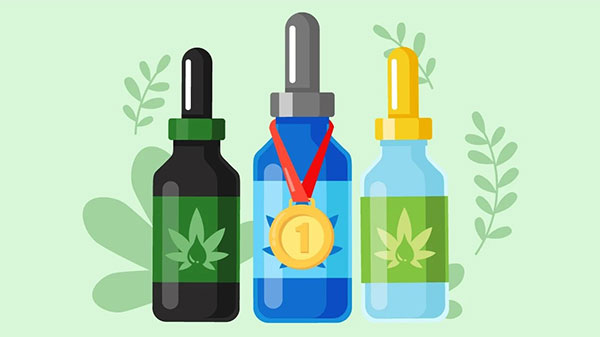
Pros:
- It is a natural remedy; it does not contain any chemicals or antibiotics that can upset your stomach, unlike prescription medicines that are available to treat candida.
- On the market, you’ll be able to find a variety of CBD oils. Some people prefer full-spectrum while others prefer isolates (which contain only one compound). There’s even an option between them if you need something stronger than either: broad-spectrum!
- Broad Spectrum means there are no traces left behind during the extraction process, so they’re purer and less likely to irritate sensitive skin types while offering all the benefits without psychoactive properties or anything else found in marijuana plants themselves. This makes them legal in all 50 states.
- CBD oil is absorbed quickly and does not require you to take large doses like prescription medications.
- The fact that it is natural also means that it will work with your body’s systems, unlike prescription medications, which can often have adverse side effects.
Cons:
- It has not been tested in extensive trials, so there is limited scientific evidence to support its claims as a cure for candida overgrowth.
- Some people find that they cannot tolerate CBD oil, especially if they are taking it internally. If this happens, the best thing to do is stop using it and consult with a health professional about an alternative treatment plan.
- As with any other medication or supplement, always consult with your doctor before starting to take CBD oil, especially if you are pregnant, breastfeeding, or have any other medical conditions.
- It can be expensive compared to some over-the-counter medications.
CBD oil for candida is a natural remedy that is growing in popularity. People are drawn to it because it does not contain any chemicals or antibiotics like prescription medicines, and there are many different types of CBD oil available on the market.
CBD oil is absorbed quickly and does not require large doses, making it a popular choice among those looking for an alternative treatment plan for their candida overgrowth.
However, as with any other medication or supplement, always consult with your doctor before starting to take CBD oil if you have any medical conditions.
CBD and other Candida treatments
Short-term therapy or even a single dose of antifungal medication may be used by healthy people with skin candidiasis, thrush, or vaginal yeast infections.
Over-the-counter antifungal medications such as clotrimazole and miconazole are effective for treating yeast infections.
However, people with a weakened immune system may have to deal with candidiasis that lasts a long time or is extremely difficult to treat. It can also recur frequently.
If you suffer from yeast infection symptoms regularly while taking regular medication, CBD oil could be your best bet in managing the condition effectively and safely over the long term.
How Can You Use CBD Oil For Candida?
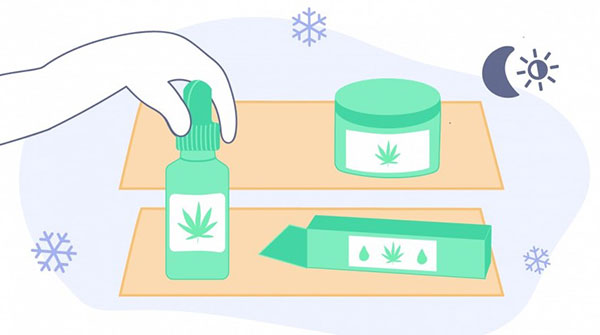
Candida is a fungus that, when present in the body, may cause an infection. This infection can occur in different areas, such as the mouth, skin, vagina, or gut.
When candida overgrows, it can lead to symptoms like vaginal discharge, oral thrush (a white film on the tongue), and digestive problems.
CBD oil has anti-fungal properties and is effective against Candida albicans, the most common species of candida that causes infections.
CBD oil works by disrupting the cell membranes of fungi, which kills them.
There are several ways you can use CBD oil for candida:
- As a topical treatment, apply CBD oil directly to the affected area.
- As a suppository, insert CBD oil into the vagina or rectum.
- As an oral supplement, take CBD oil orally.
CBD oil is a natural way to treat candida infections and has few side effects.
It is important to consult with a healthcare professional before using CBD oil for candida, especially if you are pregnant or breastfeeding.
How to use CBD cream for Candida?
Topical medications such as CBD creams, gels, lotions, and suppositories are also a great way to apply them to the areas you need them.
The use of topical CBD cream for candida is very popular and even considered one of the best ways to fight a yeast infection because it allows you to target the infected area precisely.
If your Candida outbreak occurred at the vaginal level, then using suppositories or creams directly inside your vagina would be ideal, as this will allow you to treat only those areas affected by fungal growth.
If you are using CBD cream for candida on other parts of your body, make sure to use it enough so that the area is fully covered. Leave it on for as long as possible, ideally all night. Repeat this treatment a few times a day until the infection subsides.
CBD oil has many benefits, which is why it is so popular these days, particularly among women. It’s natural and effective and can be used to treat a wide variety of conditions.
If you are looking for an all-natural way to cure your yeast infection, then consider using CBD cream or oil. It may just be what you need to get rid of those pesky symptoms and feel better again!
Conclusion: CBD Oil for Candida
CBD oil may be the solution if you’re searching for a natural cure for a yeast infection.
There is still more research to be done on this topic, but the early results look promising.
CBD oil has been shown to kill Candida albicans, which is one of the most common causes of yeast infections. It also aids in the reduction of inflammation and the strengthening of the immune system.
If you are interested in trying CBD oil for Candida, make sure to talk to your doctor first.
